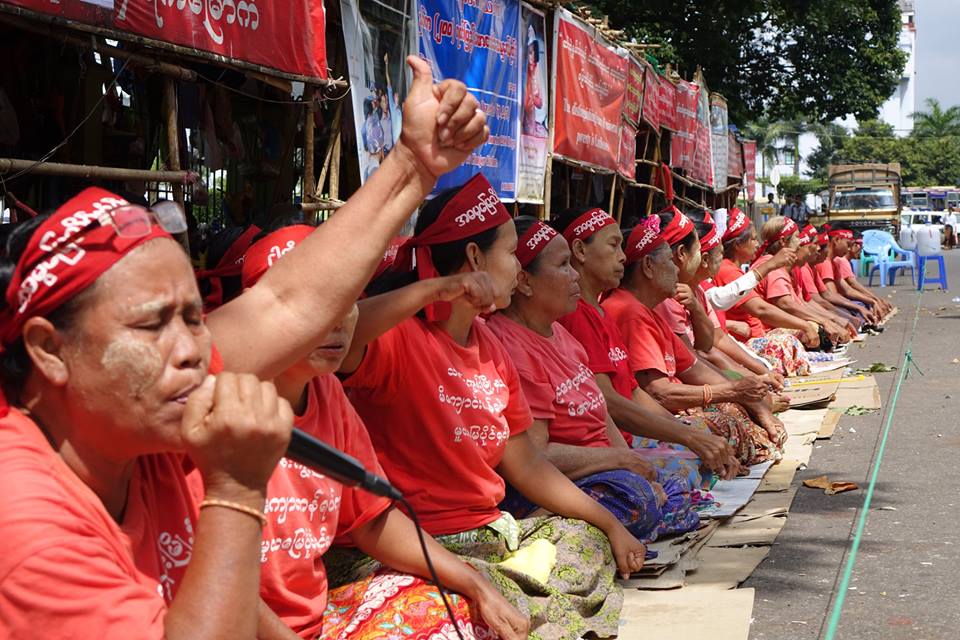Protestors from Michaungkan began a hunger strike at Maha Bandula Park on Wednesday calling for the release of Sein Than, a community leader from the eastern Rangoon village who was arrested and jailed for staging an unauthorised protest in July.
The protestors have occupied the site in central Rangoon for seven months, demanding the return of seized lands.
Maung Maung, an active Michaungkan protestor, told DVB in a phone interview on Thursday that, “We have been here for the past seven months and have now decided to stage a hunger strike for one day.” He said that the sit-in protest will continue at the park “until our demands are met”.
Sein Than was arrested on 27 July and sentenced to eight months imprisonment in Rangoon’s infamous Insein prison for protesting without official permission.
[related]
The protests have continued despite an ultimatum issued by Kyauktada Township authorities which gave the Michaungkan protestors until 3 October to disperse and clean-up their camp at Maha Bandula Park.
About a week after their initial protest began in late November 2013, approximately 400 villagers showed up at the protest site to receive funeral rites from local monks, proclaiming that they were “ready to die” for their land.
Shortly thereafter, the demonstrators reported being attacked by a group of thugs who claimed to be military clearance personnel. Within days of the incident, which reportedly left at least eight people injured, police issued an eviction order demanding that the site be cleared by 9 December.
Protest leaders and the Burmese parliament’s Land Investigation Commission then negotiated a three-month suspension of the protest after the commission promised to deliver results within this three-month time-frame.
Parliamentarian and commission member Aung Thein Linn told DVB in December that the government was committed to solving the dispute. “Otherwise,” he said, “it will be damaging to our country’s image, especially while the SEA Games are being held.”
At the time, Burma was scrambling to prepare for the major regional sporting event, which drew international attention and many visitors.
Three months later and still unsatisfied, about 100 protestors resumed their sit-in, but this time the protesters re-located to Maha Bandula Park in downtown Rangoon, located just 400m west of Sule Pagoda and Rangoon City Hall.
One week after setting up camp in Rangoon, the former landowners were forcibly dispersed in an early morning raid on 30 March by Rangoon security personally, including dozens of plain-clothed men.
Nevertheless, the demonstrators have vowed to keep fighting on and have maintained a presence at the park ever since.
In August, a 72-year-old protestor died at the encampment after 138 days at the park. After the woman passed away her fellow activists reiterated that nothing would make them accept the loss of their land, even death.
During Burma’s military era, land was routinely confiscated by the government for state use. But ever since Burma transitioned to a quasi-civilian government in 2011 protests have become increasingly common as villagers attempt to reclaim their assets.
New land legislation introduced in early 2012 was met with major criticism. In particular, critics have argued that the new laws legitimise government and corporate land-grabs while offering little protection to individuals. A government commission established in 2012 to resolve thousands of land-grab claims has yet to make progress on the majority of claims it has received.



